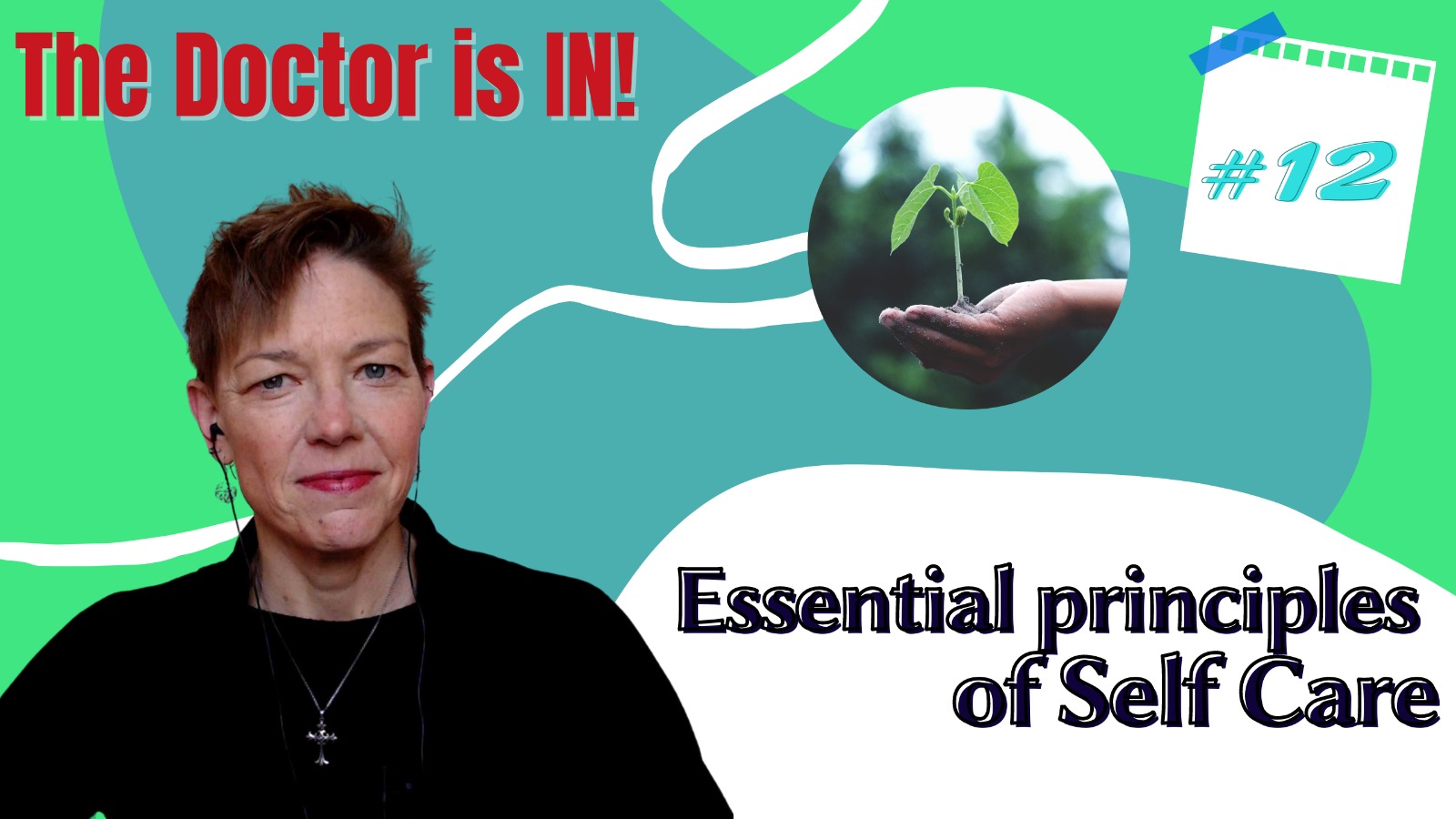
Most of my time I discuss the health and wellbeing of survivors of trafficking/slavery/exploitation and there is a lot of cross-over application of those topics to the lives of those who serve these people. The most important of these topics is self-care. Self-care is crucial to those in recovery, but it is also absolutely vital to those who are working with survivors. This is the blog version of the podcast I recorded about this topic.
This is not about why you need to practice self-care – you already know that you do. I’m also not going to tell you what you should do – because only you can figure that out. What I am going to do here is to outline some basic principles of self-care to help guide you in this process. One myth that I would like to bust right up front is that self-care is a woman thing to do! It is NOT! A lot of self-care articles and the like are written by women and focus on things from a women’s perspective. There’s nothing wrong with that, but I don’t want to perpetuate the idea that self-care is not for dudes because they may not be as open about touchy-feely stuff. Guys! We need you and therefore we need you to take care of yourselves! Self-care doesn’t have to look a certain way as you’ll discover here.
MYTH: Self-care is a female thing to do!. Guys! We need you and therefore we need you to take care of yourselves! It will just naturally look different.
We can’t help others further than where we are ourselves. Furthermore, when helpers aren’t in a healthy space, they can fall into traps of co-dependence, or have their own healing wrapped up in the healing of others, which hinders healing in the other. Unhealthy people can wreak havoc in teams. Finally, lack of good self-care can lead to burn-out, depression, and other more serious mental health problems. These issues are larger than a self-care plan can fix but following a plan to take care of our mental health will help prevent us from falling into these hazards.
Self-care is a hot topic these days and it is great that people feel freer to talk about how important mental health and overall life balance are in our daily lives. However, a lot of what I hear and read about regarding self-care is not necessarily helpful. There is a big difference between nourishing self-care and practices that are escapist or merely distract us from our present tensions.
These latter kinds of activities do have their role – I enjoy an evening of wine and Netflix as much as the next person. They help me relax and zone out a bit, but they do not lead to deeper inner wellbeing. In principle, and I have told myself this before, that the escapist activities get me to a state where I can do deeper work, but I have found that is usually not the case.
In the same light, self-care does not equal “treat yourself”, it is not that simple. Although treating yourself IS a good thing once in a while, it is rather shallow. The danger of “treating yourself” is that it fuels a reward-seeking mindset and can trigger addictive behaviors.
Self-care is not a list of activities; self-care is a practice of maintaining a lifestyle that is generally balanced and sustainable. Self-care is not something you implement when you feel yourself getting a bit fried or burned out – it is not a parachute. Although measures do need to be taken – I just wouldn’t call that self-care. A good self-care plan includes daily, monthly, and yearly practices that form a rhythm to our lives and can help prevent burnout, or at least mitigate the down times.
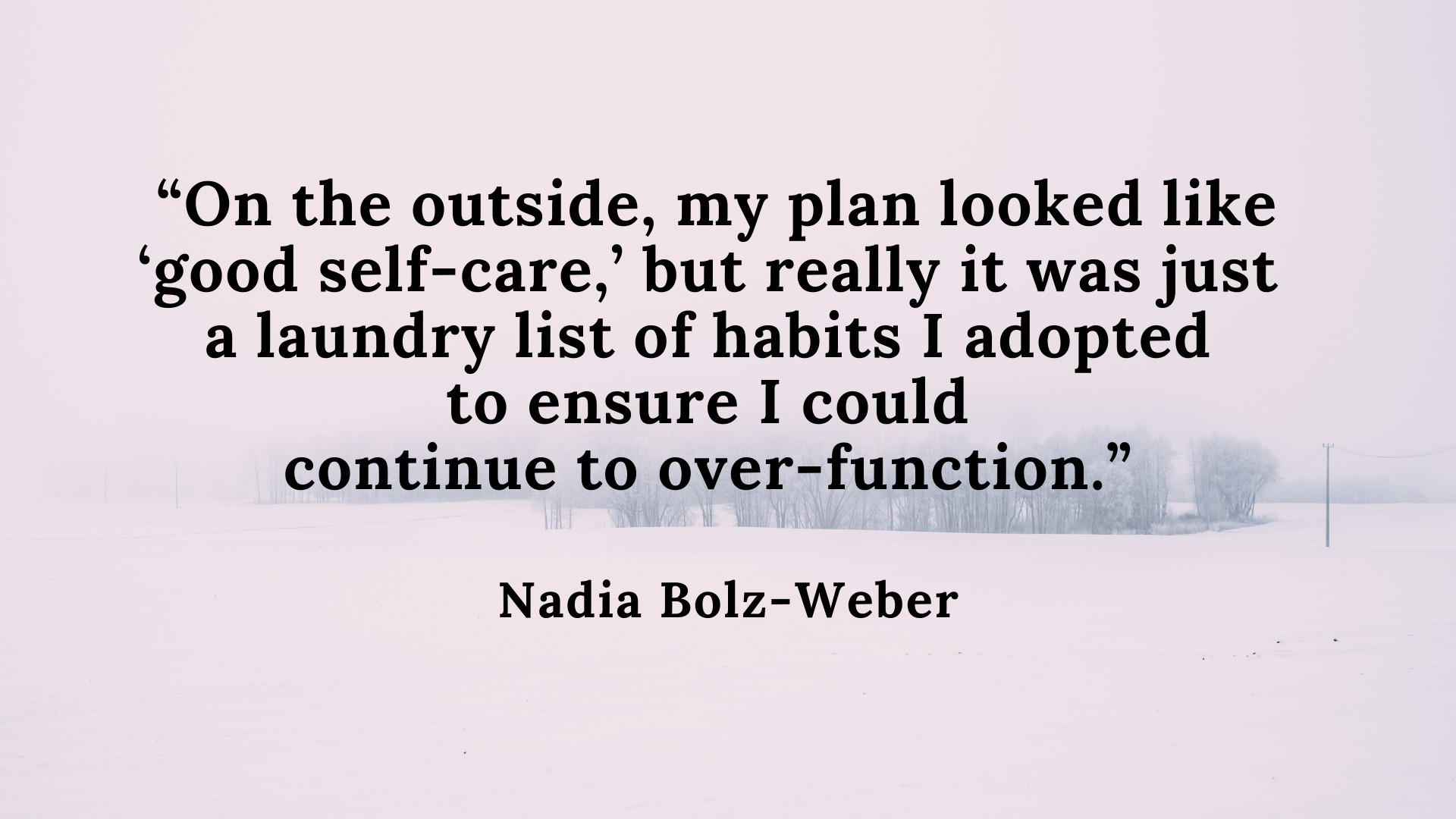
Of course, there are always times – more often than we like – when it is impossible to keep balance and sometimes life happens at that pace is unsustainable. Life happens! But when these circumstances arise on the foundation of good self-care then one has the resilience to survive, if not thrive through them. It is also possible that life crises or super hectic circumstances either seem to occur less frequently or they don’t seem so overwhelming because a good foundation of resilience helps to buffer the impacts. We have extra tools to use to help us keep steady and maintain better judgment in our decisions.
Self-care, or a self-care plan/lifestyle/modus operand has several components and understanding these foundations can help you develop a plan that works for you. These activities can (and probably should) change based on where you are in your life stage and current environment. In my experience, the practices are basically the same, but the way I carry them out in my routine differs.
While self-care is not ONLY a list of activities, but self-care does also eventually boil down to what you choose to do or not do.
The three basic elements of self-care are:
1. Self-Awareness
2. Inputs (external & internal)
3. Discipline
Self-awareness is the first key to good self-care. Without self-awareness how does you know how to care for yourself?
• Who you are and what you want.
• How are you best nourished? What nourishes you?
• What are your resilience factors and resources? (internal and external?)
• What are your threats/weaknesses? (internal and external?)
How do we develop self-awareness? A lot of it is experience and some of it is experimentation and trial and error. We may read an article that outlines the 10 Steps to Self-Care, or “The Last Self-Care Plan You Will Try” and then think, that’s a bunch of rubbish! How can people think that bubble baths are the best thing since sliced bread? It’s OK to disregard someone else’s advice and it’s OK to try something and not have it work for you. It is very OK to try something that sounds good to you but crazy to most people you know. For example, I like to run for hours at a time with no music, no podcasts, nothing but the thoughts until I run out of thoughts and am in zen mode – fully present to myself.
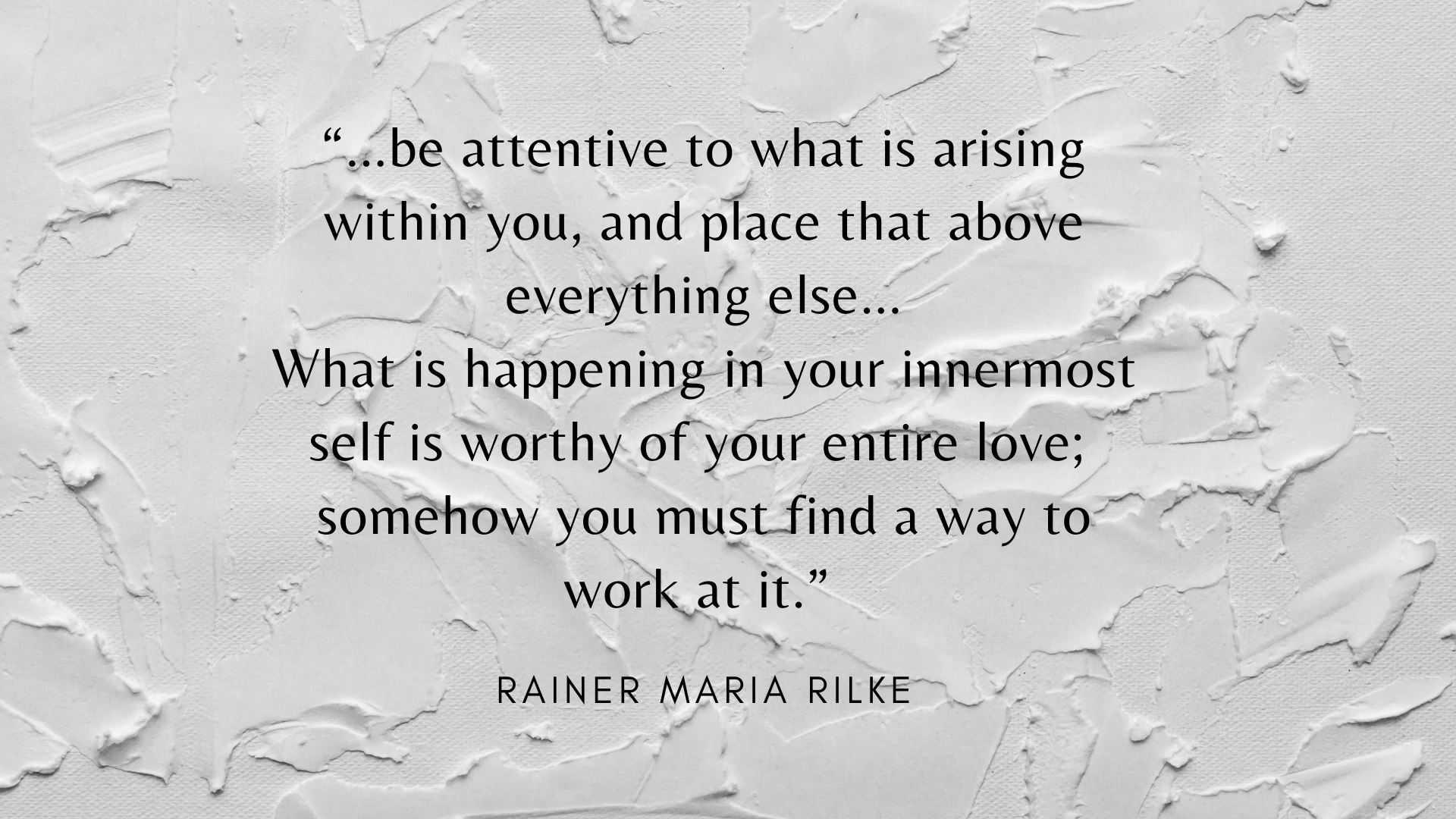
Inputs are the various practices and habits and activities that we can implement. External inputs are those things that we do with other people and internal ones are the things we do alone. Everyone needs a combination of internal and external, although I think that being introverted or extroverted will influence the amount of time spent in one or the other type.
- Exercise: groups sports or activities versus those done alone. Running (my favorite) is one that can be done both ways. Most of the time I train by myself. I even like the idea of going out for hours at a time all alone without music or podcast – just me and my thoughts until I run out of thoughts. However, I also enjoy running with some buddies to share the miles and talk through a variety of things, but mostly running.
- Singing is a great way to relieve stress and enjoy with others. An external form of this would be joining a choir. An internal example would be singing solo. A friend of mine in China loved to go to a Karaoke place and sing by herself to unload stress.
- A good example of an external input could be meeting regularly with a friend for an honest check-in, or a prayer partner to help you articulate what’s going on in your own life as well as being open to listening and holding space for someone else. Another way would be to meet with a spiritual director, which is more of a one-way direction, but it is still valuable. These examples, in its various forms, are thing that I think will benefit all people in their journey to wholeness.
- Inputs don’t necessarily have to be people or activities that directly give you input. One important version of an external input is to do something for others. It is very important that we don’t consider self-care as only curling up and naval gazing activities. It is no secret and has been scientifically proven that doing something for others (volunteering, mentoring, tutoring, etc. – not just giving money) will do something in and for you.
What satisfies a creative outlet? What gives you a sense of gratification of accomplishing something? What makes the world more beautiful – inside and or out?
There are a wide range of possibilities here. What satisfies a creative outlet? What gives you a sense of gratification of accomplishing something? What makes the world more beautiful – inside and or out? One place to start would be to consider what hobbies you have enjoyed in the past that you are no longer doing for whatever reason – could you restart one? During a self-care talk to an organization, one of the participants remarked that she thought of taking up her embroidery project again. She had dropped it but thought it would be good for her to make time for that again. Perhaps there are things you love to do but have neglected that due to life circumstances – is there a way to do a version of that in a different way?
Discipline is where the rubber meets the road. This is the execution of whatever inputs, activities or plans we want to do. You don’t have time to do the things you should because you do not make the time.
A self-care plan should not be so rigid as to cause stress if we aren’t following it, but often if not always requires some sacrifice in order to carry it out. When we have learned what is not helping us move forward in wholeness, we need to put that down if we are going have space to pick up that thing that will help us move forward. If you aren’t willing to drop anything, then either you’ve got your life sorted and you don’t need a plan, or something will give out eventually – and it is usually the new thing.
There is always give and take and there is the habit-forming process. Just how bad do want to achieve your goal? There is a lot more to be said here but to keep it brief, I’ve outlined a few basic aspects to developing discipline.
- Set reasonable expectations for yourself.
- Establish a rhythm and stick to it!
– Get out of bed 15 minutes early! Even if you are not fully present, you’ll adapt
– I will commit to that 10-minute mediation app!
– I will start exercising for 30 min 3x/week!
– I will put down my blinking phone and go to bed 30 min early! - Establish reasonable boundaries with yourself and with others. An example is that my need for fun time with my friends conflicts with my need to train hard for ultramarathons. I have to compromise on one or the other to satisfy both of these needs.
- Many, if not all of us need alone time, so instead of accepting an offer to go out with friends, I might say that I’ve got other plans. It doesn’t matter if those plans include reading a good book with my butt stitched to the sofa, but those are definitely plans!
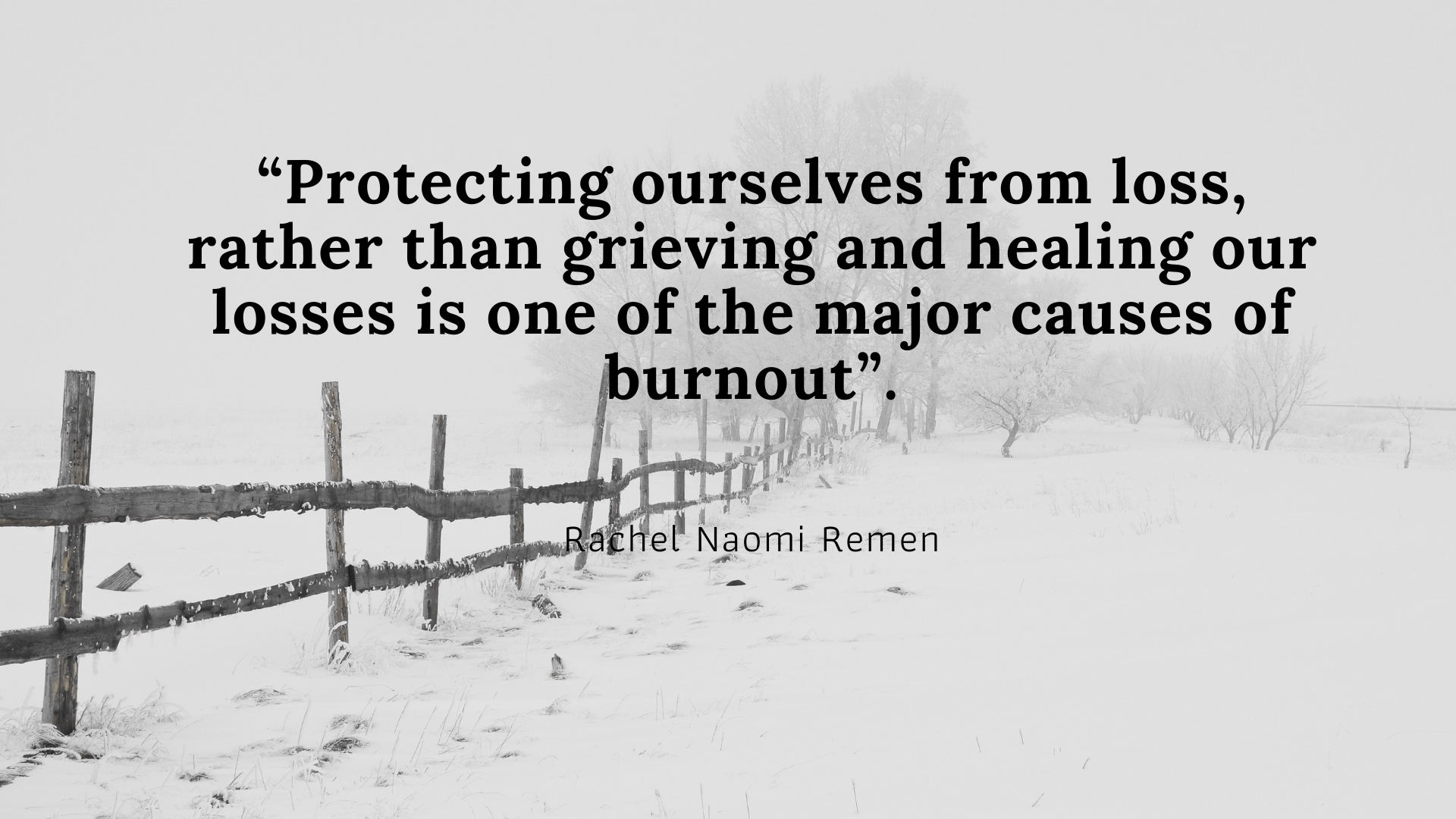
Over the last 20 years of cross-cultural service, I have a lot of experience with self-care, partly because I DID NOT practice good self-care for part of the time. I got burned out and crispy-fried a couple of times. I learned the hard way, but I’m still here! I sometimes ignored advice because it wasn’t for me – the suggested activities weren’t appropriate for me (bubble baths and singing worship songs to myself) and being forced to meet with someone for so-called accountability seemed perfunctory. I eventually did find a way to keep myself healthy. This doesn’t mean I don’t struggle, have down or difficult or angry times. It does mean that through growing self-awareness, recognizing the inputs that nourish me, and implementing the discipline to do them, I can recognize when I need tighten up my routine or relax a bit from my work to get back into balance.
There is no magic plan, nothing magical about it. Self-care should be challenging enough to keep us stimulated and not bored but not so difficult as to be unsustainable. Recognize where you are, start there and go.
I’d love to hear how you are doing and how this has helped you… or not. Please reach out to me in the comments or email or in the contact section. Please share this blog or the podcast version. Thank you!

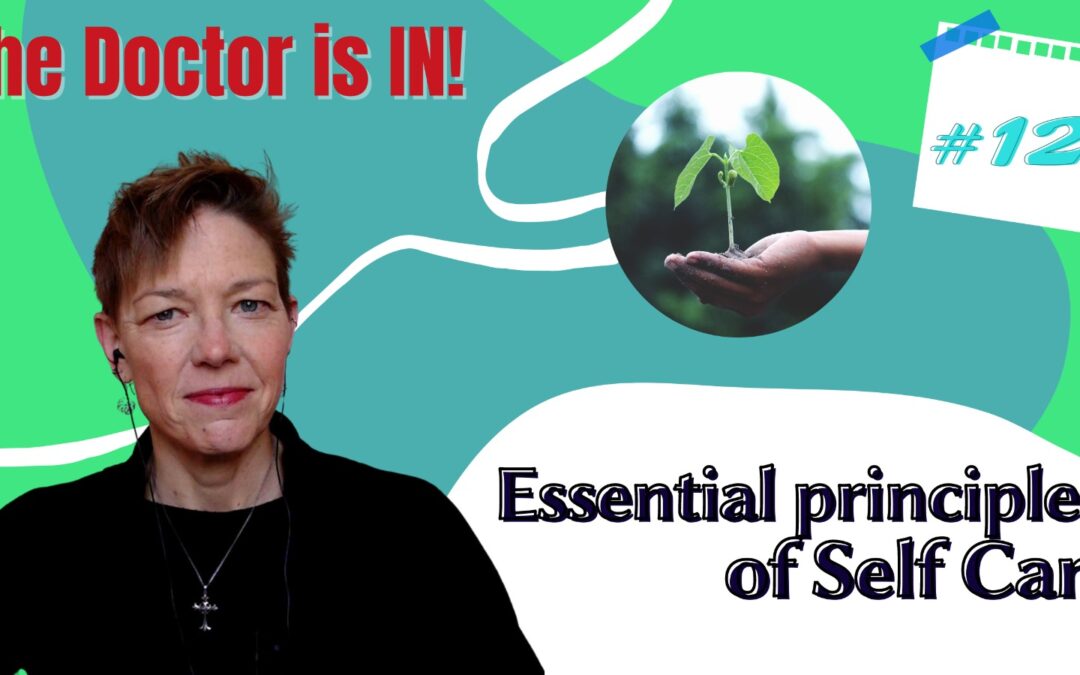
Recent Comments